Global work needs to be local: Hilary Pennington with Anannya Bhattacharjee

Transcript
[Anannya Bhattacharjee, an Indian woman with dark brown hair and a blue patterned scarf draped over her shoulders, joins Hilary Pennington, a white woman with short blonde hair, wearing an orange sweater, in a video conversation.]
[on-screen text: Hilary Pennington, Executive Vice President of Programs, Ford Foundation]
HILARY PENNINGTON: What were some of the most important moments of learning for you that have really informed the approaches you’ve chosen to take?
[on-screen text: Anannya Bhattacharjee, International Coordinator, Asia Floor Wage Alliance]
ANANNYA BHATTACHARJEE: I have to connect here and now with where I am, with the communities that I am in. So how do I do work that is not all externally oriented—happening somewhere else—but also make a change here and now, where I am? Global work is absolutely impossible to do unless one is locally grounded.
And what I find, coming from the Global South, is that we see a lot of leadership coming from Global North. It often appears that Global North has the strategy and Global South is the field on which the strategy’s played.
HILARY: That is—absolutely, yes.
[on-screen graphic: Social Justice Leaders on What Matters, Hilary Pennington with Anannya Bhattacharjee]
HILARY: Anannya is the international coordinator of the Asia Floor Wage Alliance, a global supply chain campaign for living wages and for a violence-free workplace for garment workers in Asia. She is also president of the Garment and Allied Workers Union in North India.
Can you paint a picture of work inside a garment factory in North India?
ANANNYA: A garment factory in North India would typically be, maybe, say, three or four floors high and have different departments in each floor. The core worker is a tailor. Workers have to come to work on the dot, like, if they’re even 10 minutes late, they may be told that you won’t get paid for the day. Workers tell me that they cannot even lift up their head because every second counts. And if you don’t produce, then workers can be threatened with termination. There is forced overtime. There is denial of liberty, like, just going to the toilet or taking your breaks.
Asia Floor Wage Alliance works across Asia—so in all the garment-producing countries—and these are almost 90% women workers.
HILARY: And I’m imagining that while there are women workers, there are probably not equal representation of women in the ranks of management. So can you talk a little bit about why power-building efforts to develop and support the leadership of women workers are so important?
ANANNYA: Yeah, from the Asia Floor Wage Alliance’s point of view, gender-based violence is what we call the coercive situation in which women workers work. This is the business model. The business model relies on gender-based violence in order to produce the goods at the cost that they are produced—which is extremely low—and at a rate which is extremely fast for, you know, producing extreme profit.
HILARY: These international brands get more and more sophisticated at claiming the language and claiming the changes, when in fact those have not happened. So can you talk a little bit about how you are trying to bring pressure through regulatory bodies to change that?
ANANNYA: The way the global supply chain works is that brands actually make their sourcing decisions regionally, not nationally. They look at Asia as a labor market with a certain labor cost attached to it, on average, across Asia.
HILARY: Yeah.
ANANNYA: We realized as trade unionists why we were failing at raising country-level wages—because the brand would simply compete one country against another. If one country raises wages—“Okay, we are moving to another country.” So what we said is that if they have a regional labor market approach, we must have a regional bargaining approach to counter that, to meet them where they are at. So we brought all the trade unions together in Asia, and for the first time we developed the formulation for an Asia-wide living wage because that is what will restore basic dignity to workers. So that is our bargaining approach.
HILARY: What were some of the most important moments of learning for you that have really informed the approaches you’ve chosen to take?
ANANNYA: What is very important to me is to be grounded, because I was actually a student in the United States and I got politicized through campus activism. And I got involved in, you know, anti-apartheid and all these other struggles, and then I realized that it’s very important to do all this stuff, but I have to connect here and now with where I am, with the communities that I am in. So how do I do work that is not all externally oriented—happening somewhere else—but also make a change here and now, where I am? Global work is absolutely impossible to do unless one is locally grounded.
HILARY: Yeah.
ANANNYA: And what I find, coming from the Global South, is that we see a lot of leadership coming from Global North. It often appears that Global North has the strategy and Global South is the field on which the strategy’s played.
HILARY: That is—absolutely, yes.
ANANNYA: And in Asia Floor Wage, that was my absolute determination—that the strategy must come from Asia, and then we tell the consumers of Europe and North America that, “This is what we want. Can you campaign on this?” And it took some persuasion. It’s not as if it happened overnight. It’s not often that a Global South organization tells the Global North, “Here is our strategy. Will you support us?”
HILARY: So this, I think, is one of the most important issues and power imbalances happening now in the philanthropic sector. And all too often funders play right into it. You know, for the big problems that face the world, we cannot actually solve them unless we bring the knowledge and experience of people who are in the Global South to the table.
I think about how deeply feminist your approach and your work is. We are at a time, I think, when feminism is being challenged for good reason. And particularly, women feminists from the Global North are being challenged by their sisters in the Global South. So I’m curious for you, you know, how you see the future of feminism in a way that can really make room for shifting those kinds of tables and perspectives.
ANANNYA: That question can be answered in many different ways, depending on the part of the world one is in, you know? I totally agree with you that, you know, when I was in the United States, I used to be very much part of the women of color movement, you know, challenging the sort of monolithic view of, you know, feminism, women’s rights … And that struggle is not over. I mean, it’s continuing.
One of the things that I’m trying to do in the region that I’m in right now is that I find that the women’s movement is quite divorced from the labor movement, and it has been so for a long time. The usual charge from the women’s movement is that the labor movement is so male dominated and it’s so annoying and, you know, they don’t pay attention to women’s issues. All of which is true. My point is that I came from the women’s movement. I saw in my backyard, workers needed to be organized. And I just said, “Okay, I will organize.” You know, nobody taught me how to be a trade unionist. What I found is that we have to build the labor movement new. We have to build it fresh. We cannot sort of hark back to sort of old leaders and say teach me how to build a union. It’s not rocket science. It’s just organizing. So one has to just get out there and do it. Don’t criticize the labor movement from outside. You become a labor organizer, a labor leader, and you have to change the labor movement.
And so part of being a feminist today, I feel, is that we not only have to critique the system as it exists, we have to enter it, we have to change it. We have to change the way business happens in the—in the world of whatever movement one is in.
HILARY: I couldn’t agree with you more—especially in the male-dominated spaces and fields—100%.
It’s such a challenging time because of COVID and all of the impacts of it. It is a time that is sort of accelerating history, accelerating change. So, as you look out now, is there anything that makes you optimistic?
ANANNYA: Yeah, strangely enough, I feel energized and optimistic during this time—keeping aside the really tough period that all of us are going through at a personal level, organization level, all kinds of things. The reason I feel optimistic is because I feel that people are really rethinking their approach to the planet, their life, their consumption habits. So people are really wondering whether we should live the way we were living before. We must be radically transformative at this point because when we are most scared and most uncertain, we tend to go and retreat more. This is not the time for retreat. This is the time for pushing for the maximum transformation because this may be the only chance we got right now.
HILARY: You know, I just so resonate with—and that’s what I see, actually, in you and in so many of the organizations and people that Ford works with, you know, people who have radical imagination. They are not trying to imagine how to go back to normal. I really appreciate your work and your leadership and the opportunity to partner with you. Thank you.
ANANNYA: Thank you very much. I appreciate this a lot. It was lovely talking to you.
[on-screen text: What’s your take? Join the conversation]
[on-screen graphic: Ford Foundation logo]
Accessibility Statement
- All videos produced by the Ford Foundation since 2020 include captions and downloadable transcripts. For videos where visuals require additional understanding, we offer audio-described versions.
- We are continuing to make videos produced prior to 2020 accessible.
- Videos from third-party sources (those not produced by the Ford Foundation) may not have captions, accessible transcripts, or audio descriptions.
- To improve accessibility beyond our site, we’ve created a free video accessibility WordPress plug-in.
“Global work is absolutely impossible to do unless one is locally grounded.”
In this episode, our vice president Hilary Pennington is joined by Anannya Bhattacharjee, International Coordinator of Asia Floor Wage Alliance and president of Garment and Allied Workers Union in North India. As an experienced labor and social justice activist, Anannya has done significant work both to address poverty level wages and gender discrimination to improve the lives of garment factory workers and to hold consumers and brands accountable.
Learn more about Asia Floor Wage Alliance at asia.floorwage.org
Other videos in this series
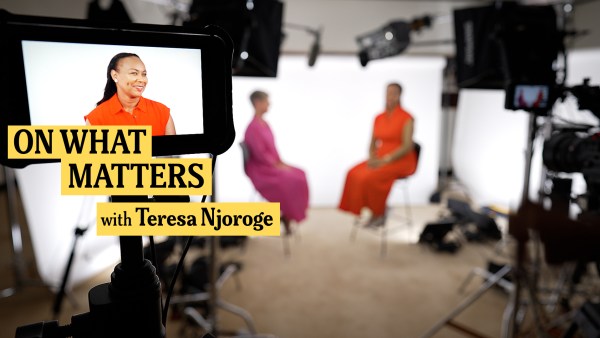
The Power of Restorative Justice With Teresa Njoroge and Hilary Pennington
Teresa Njoroge, founder and CEO of Clean Start Solutions and criminal justice reform advocate, and Hilary Pennington, executive vice president of programs at the Ford Foundation, discuss helping people who have been through Kenya’s justice system find new dignity and hope through employment.
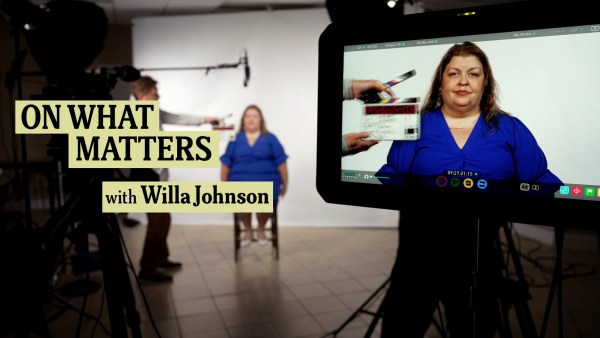
The Power of Appalachian Art With Willa Johnson and Sarita Gupta
Willa Johnson, director of the film department at Appalshop, and Sarita Gupta, vice president of U.S. programs at the Ford Foundation, discuss heartland creativity and amplifying rural narratives.
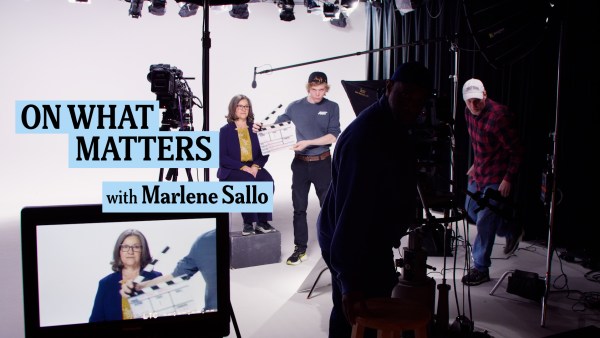
Centering Disability Rights and Justice With Marlene Sallo and Hilary Pennington
Marlene Sallo of the National Disability Rights Network and Hilary Pennington of the Ford Foundation talk about the systems that support and fail the disability community and how disability justice is essential to building a multiracial democracy.
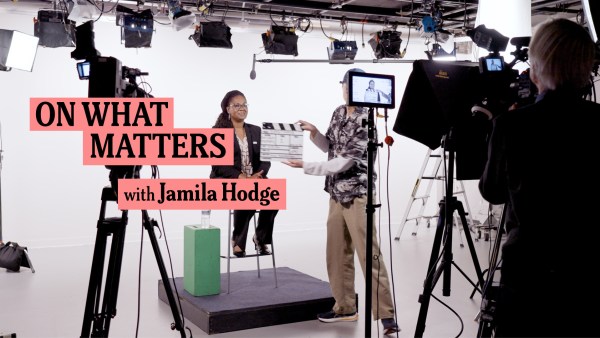
Advancing Community-Based Violence Intervention With Jamila Hodge and Sarita Gupta
Jamila Hodge of Equal Justice USA and Sarita Gupta of the Ford Foundation talk about community-based violence intervention and the importance of promoting a trauma-informed public health response to violence. Jamila explains how, if we want to address institutional racism, we must address the root causes of violence and center those most impacted.
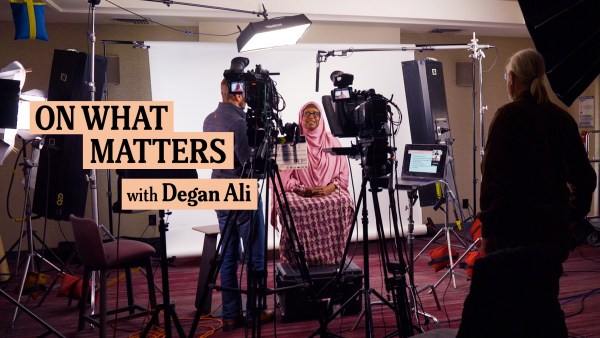
Decolonizing Humanitarian Aid With Degan Ali and Martín Abregú
Degan Ali and Martín Abregú talk about shifting to locally led development and decolonizing aid. Degan shares why we must rethink current structures of providing aid and have local civic society organizations play a stronger and more strategic role in global policy debates.
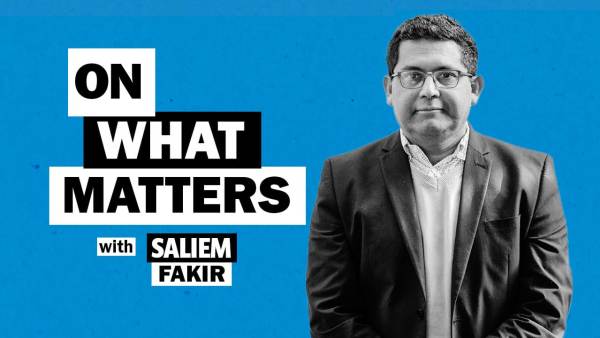
Working Towards a Truly Just Energy Transition with Hilary Pennington and Saliem Fakir
Saliem Fakir, the founder and executive director of the African Climate Foundation, the first grantmaking foundation in Africa focused on furthering solutions for sustainable climate development, joins Hilary Pennington to discuss the urgent need to address climate change and South Africa’s promising Just Energy Transition Partnership.
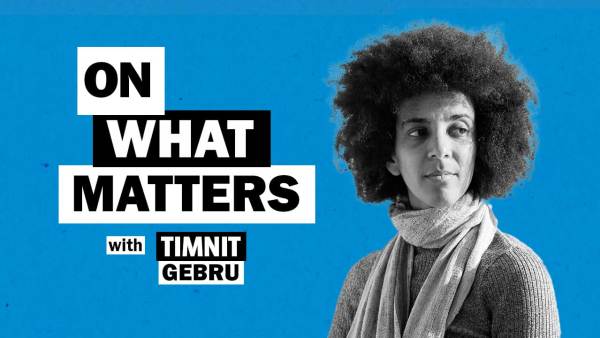
Making AI systems more just with Hilary Pennington and Dr. Timnit Gebru
Dr. Timnit Gebru, founder and executive director of the Distributed Artificial Intelligence Research Institute (DAIR), joins Hilary Pennington to discuss how an inclusive and collaborative approach to creating AI systems can address the uneven benefits and harmful impacts of technology on society.
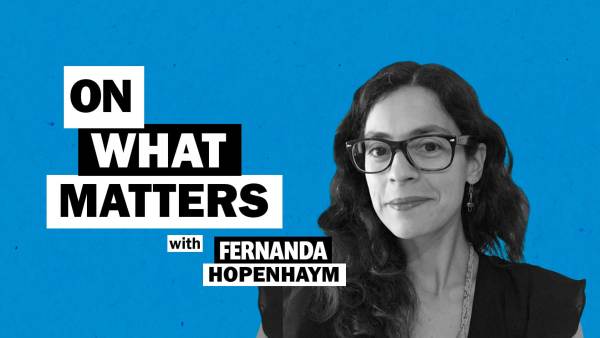
Holding corporations accountable with Hilary Pennington and Fernanda Hopenhaym
Fernanda Hopenhaym is the co-executive director of the Project on Organizing, Development, Education, and Research (PODER), a nonprofit in Latin America that pushes for corporate accountability for human rights and environmental abuses. Fernanda and Hilary discuss how to keep businesses ethical and transparent by using feminist and human rights organizing strategies.
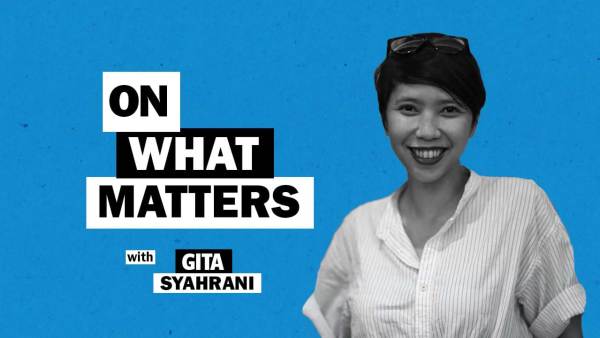
Saving forests while eradicating poverty with Hilary Pennington and Gita Syahrani
Hilary Pennington talks with Gita Syahrani about how engaging Indigenous and local communities in sustainability efforts can lead to greater economic mobility for them. Her work shows how civic engagement at the district level can have global impact.
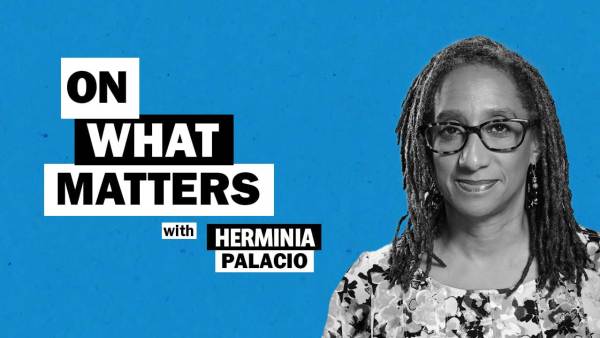
The future of reproductive justice with Hilary Pennington and Dr. Herminia Palacio
Hilary Pennington and Dr. Herminia Palacio discuss this moment in the reproductive justice movement, how different communities are impacted, and what the United States can learn from countries that have won gender and reproductive health victories.
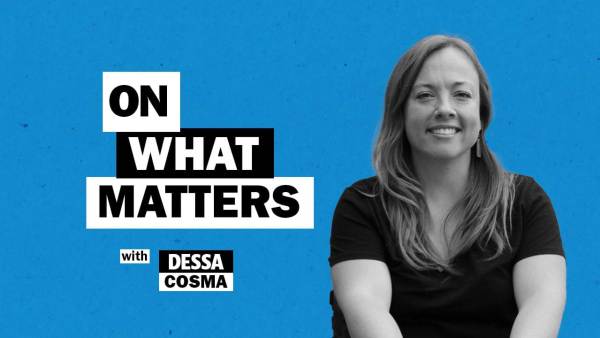
Reimagining how we think about disability with Hilary Pennington and Dessa Cosma
Hilary Pennington talks to Dessa Cosma about disability justice and inclusion. They discuss the importance of using intersectional approaches to activism and how to restructure the economy to be more just for disabled people.
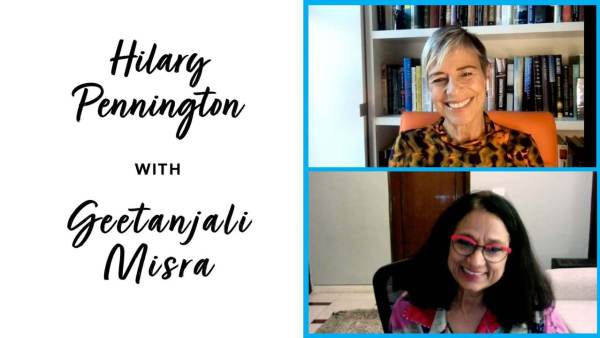
The future of feminism: Hilary Pennington with Geetanjali Misra
Geetanjali Misra has bore witness to the evolution of feminism both on the ground in the U.S. and India and in her work as an activist. Seeing patterns change and movements shift, she speaks about the importance of intersectionality in building a more inclusive feminist future.
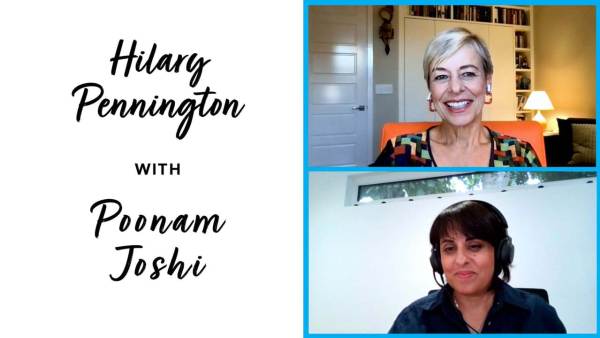
COVID’s impact on civic space: Hilary Pennington with Poonam Joshi
Civic space is essential for democracy. It allows people to participate in society and communicate freely and without discrimination. But, according to Poonam Joshi, director of Funders’ Initiative for Civil Society director, there are threats that need to be addressed before we solidify the civil society we want in the future.

Funding Black feminism: Hilary Pennington with Tynesha McHarris
Black feminist movements are advancing social justice globally. Tynesha Harris, one of the founders of the Black Feminist Fund, aims to channel more support to movement leaders and create a model of true solidarity. Racial, gender, and class injustice need an intersectional approach that acknowledges the inherent value of Black women.

Philanthropy and environmental justice: Hilary Pennington with Laura García
When it comes to climate change, time is running out. But communities all over the world are working on solutions, and philanthropy needs to center their ideas and perspectives to win this fight. Laura Garcia, CEO of GlobalGreen Grants Fund, shares how funding grassroots movements can address challenges at the intersection of social and environmental justice.
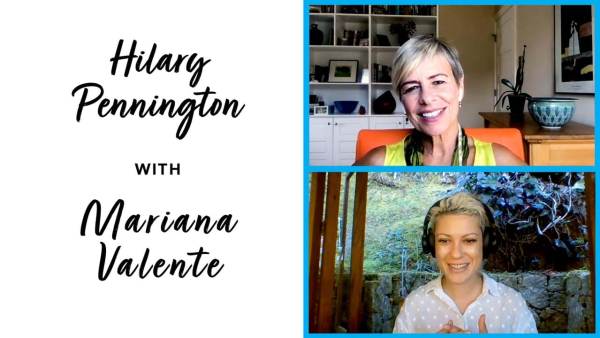
Technology and gender: Hilary Pennington with Mariana Valente
The internet is a force for good, but it must be guided by fundamental human and privacy rights and offer social protection, said InternetLab director Mariana Valente. In this way, technology can advance equality and, with the right policies in place, be used as a tool for advocates to organize.
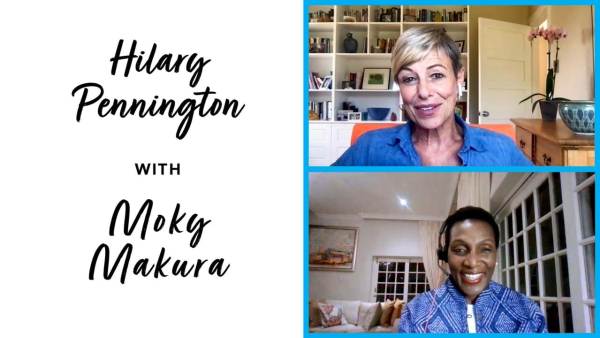
The power of storytelling: Hilary Pennington with Moky Makura
For too long, Africa has been defined in the media by stereotypes and oversimplified narratives. With Ford’s support, Africa No Filter is disrupting these narratives by empowering storytellers helping to create a nuanced, balanced view of the continent and an equitable, inclusive way of how to partner with it.
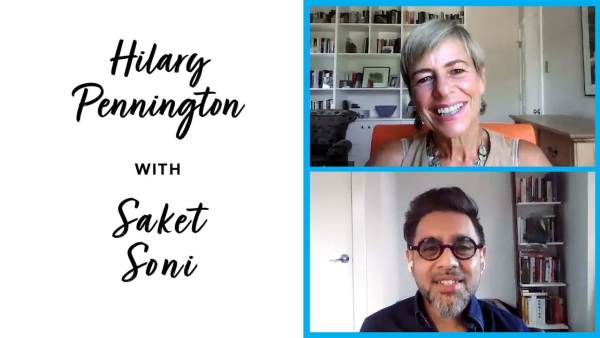
What essential workers need right now: Hilary Pennington with Saket Soni
Disasters present the opportunity to bring us together and give us the chance to reevaluate our priorities and ask what’s really important. Labor organizer Saket Soni sees COVID-19 as a prologue to other threats, like climate change. He says disaster responses need to focus on strengthening essential workers.
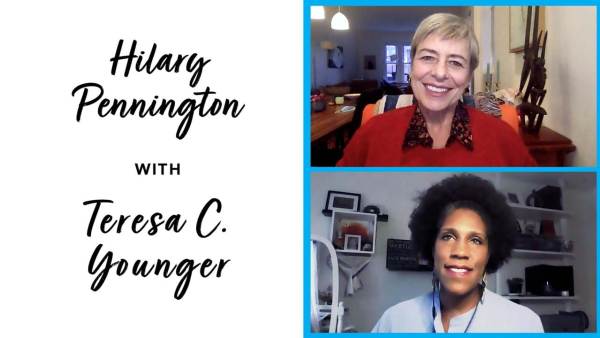
Philanthropy and Black women: Hilary Pennington with Teresa C. Younger
Social justice organizations led by women of color often receive less funding. Teresa C. Younger, CEO of the Ms. Foundation, explains why philanthropy needs to center women of color to address systemic racism and uplift women and girls of color for a more just future.
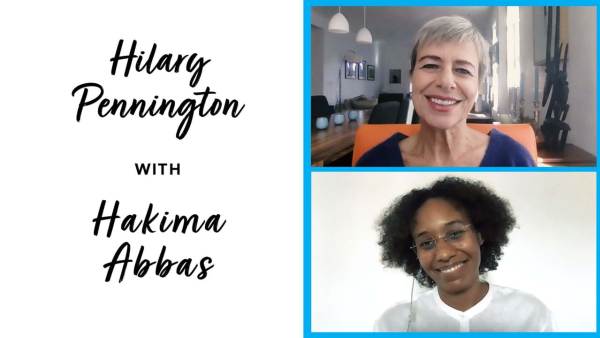
How young feminists are organizing: Hilary Pennington with Hakima Abbas
COVID-19 has impacted the way we work, but it also exacerbated gender inequality in the workplace. Hakima Abbas, of the Association for Women’s Rights in Development, believes we can prevent any further damage by including feminist leaders across the board in devising solutions.
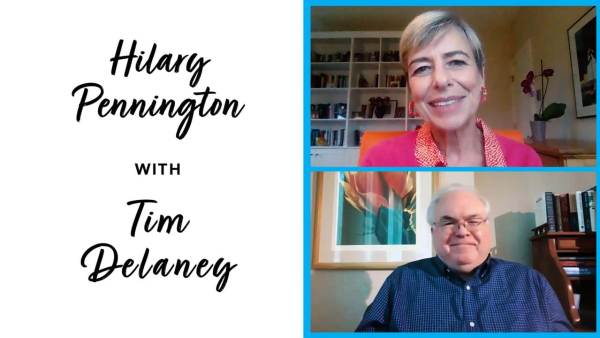
How nonprofits make an impact: Hilary Pennington with Tim Delaney
Over one million nonprofits exist in the United States, but Tim Delaney, the CEO of the National Council of Nonprofits, has an idea to make them even more impactful. To him, bringing social justice groups together can transform philanthropy for the benefit of all.
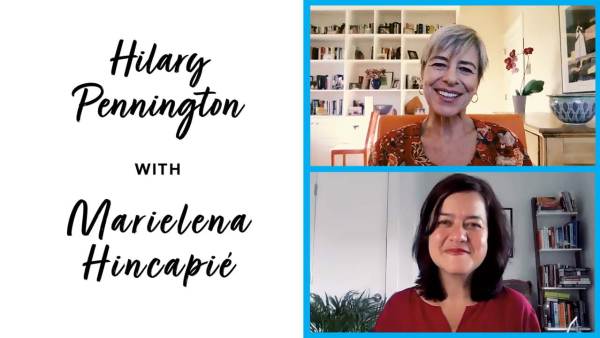
Immigrants are essential: Hilary Pennington with Marielena Hincapié
Immigration has been used as a weapon to divide the United States. The National Immigration Law Center aims to help the country understand that immigrants are not only important members of our communities and essential workers, but they are also valuable political constituencies needed to make American democracy work.
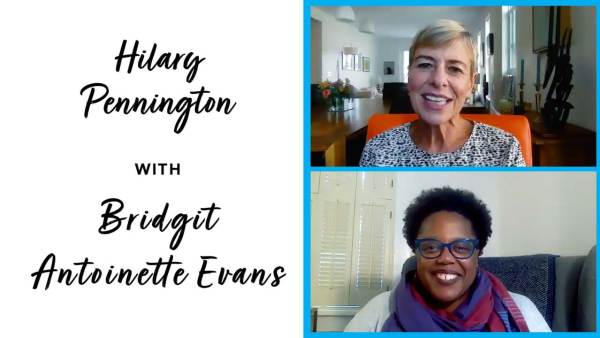
Social justice and pop culture: Hilary Pennington with Bridgit Antoinette Evans
Pop culture plays an important role in advancing social justice. Bridgit Evans of Pop Culture Collaborative produces cultural strategies that build on points of connection to ensure policy changes are not just symbolic. By finding commonalities through culture, she believes we can create a world where everyone feels they belong.
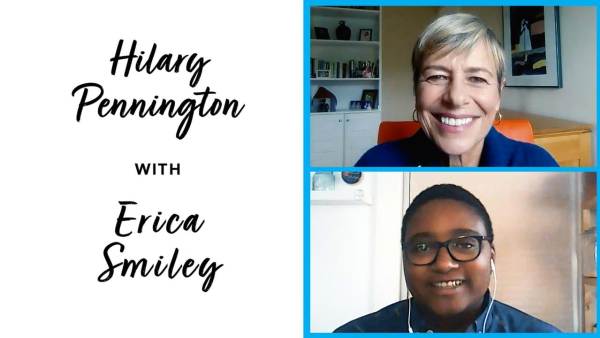
Essential workers are the economy: Hilary Pennington with Erica Smiley
The COVID-19 pandemic has dramatically changed the way we as a world work. As we face this inflection point, Erica Smiley, executive director of Jobs With Justice, believes people—especially essential workers—need to have the right to come together collectively to organize and negotiate their conditions to build a global economy that works for all.

The urgency of this social moment: Hilary Pennington with Eric Ward
We need to dismantle racism to make inclusive democracy truly possible. Eric Ward of Western States Center believes smaller movements can help support bigger waves of change. From creating cohorts of emerging leaders to encouraging small group interactions can help protect democracy and put an end to white supremacy.